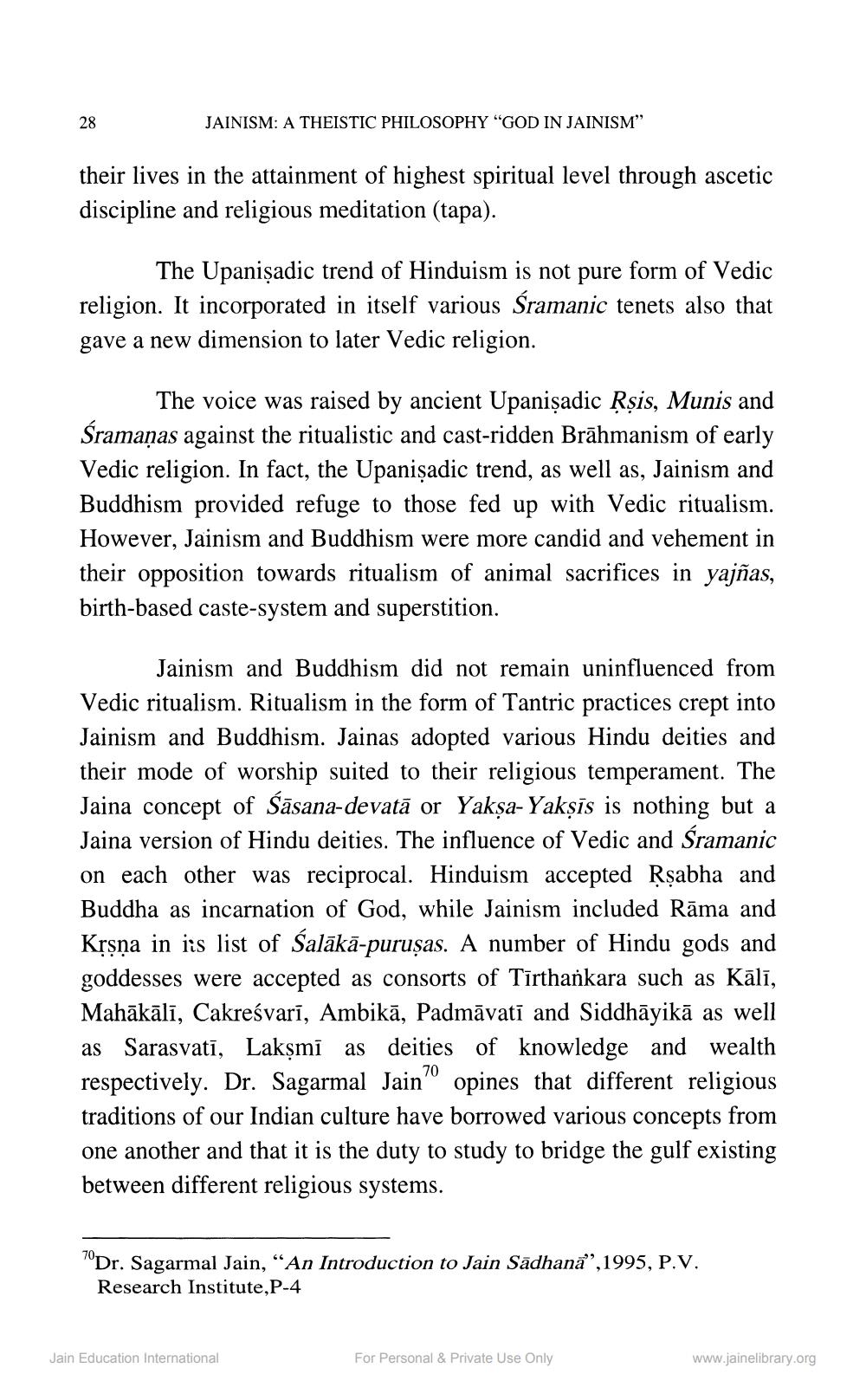________________
JAINISM: A THEISTIC PHILOSOPHY "GOD IN JAINISM”
their lives in the attainment of highest spiritual level through ascetic discipline and religious meditation (tapa).
The Upanișadic trend of Hinduism is not pure form of Vedic religion. It incorporated in itself various sramanic tenets also that gave a new dimension to later Vedic religion.
The voice was raised by ancient Upanişadic Rşis, Munis and Śramaņas against the ritualistic and cast-ridden Brāhmanism of early Vedic religion. In fact, the Upanișadic trend, as well as, Jainism and Buddhism provided refuge to those fed up with Vedic ritualism. However, Jainism and Buddhism were more candid and vehement in their opposition towards ritualism of animal sacrifices in yajñas, birth-based caste-system and superstition.
Jainism and Buddhism did not remain uninfluenced from Vedic ritualism. Ritualism in the form of Tantric practices crept into Jainism and Buddhism. Jainas adopted various Hindu deities and their mode of worship suited to their religious temperament. The Jaina concept of Sāsana-devatā or Yakşa-Yakṣis is nothing but a Jaina version of Hindu deities. The influence of Vedic and Sramanic on each other was reciprocal. Hinduism accepted Rşabha and Buddha as incarnation of God, while Jainism included Rāma and Krsna in iis list of salākā-puruṣas. A number of Hindu gods and goddesses were accepted as consorts of Tīrthankara such as Kālī, Mahākālī, Cakreśvarī, Ambikā, Padmāvati and Siddhāyikā as well as Sarasvatī, Lakşmī as deities of knowledge and wealth respectively. Dr. Sagarmal Jaino opines that different religious traditions of our Indian culture have borrowed various concepts from one another and that it is the duty to study to bridge the gulf existing between different religious systems.
°Dr. Sagarmal Jain, “An Introduction to Jain Sadhana", 1995, P.V. Research Institute,P-4
Jain Education International
For Personal & Private Use Only
www.jainelibrary.org




